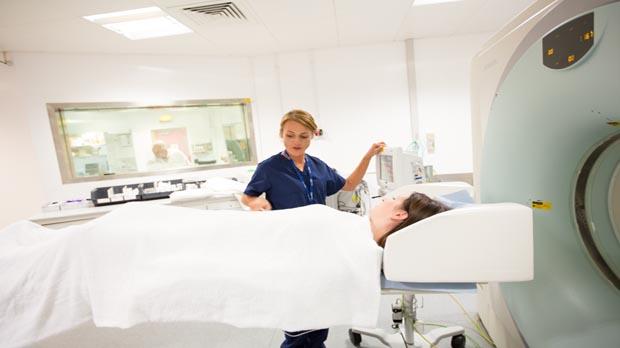
Last year in the UK over 60,000 cancer patients enrolled on clinical trials aimed at improving cancer treatments and making them available to all.
This trial looked at adding the drugs fluorouracil and interleukin 2 to interferon to see if this treatment worked better than interferon alone.
Doctors treat early stage renal cell cancer (the most common form of kidney cancer) with surgery. Sometimes the cancer comes back, or spreads to other parts of the body and becomes advanced cancer. If this happens, doctors used to use a type of biological therapy called interferon. But now they often use other treatments that have been shown to work better.
When this trial started, doctors had hoped that adding another biological therapy called interleukin and a chemotherapy drug called fluorouracil (5FU) may work better than interferon alone.
The aim of this trial was to compare interferon alone with the combination of interferon, interleukin and 5FU to find out
The research team found that the combination of interferon, interleukin and 5FU did not work better than interferon alone.
This was a randomised trial and it recruited 1,006 patients from around the world, including the UK. Of these
The research team looked at results in September 2008 to see how well the treatment had worked.
They found that of the 502 people who had interferon alone
Of the 504 people who had the combination treatment
They found that 67 out of 100 people (67%) in each group lived for at least 1 year after they joined the trial. And that 30% of people who had interferon alone lived for at least 3 years, compared with 26% of those who had the new combination.
The side effects were similar in each group, although more people in the combination group had severe side effects.
The research team concluded that there was no benefit of adding interleukin and 5FU to interferon. The cancer stopped growing or grew more slowly for a time in more people who had the combination treatment. But this didn’t affect how long people lived for.
We have based this summary on information from the team who ran the trial. The information they sent us has been reviewed by independent specialists ( ) and published in a medical journal. The figures we quote above were provided by the trial team. We have not analysed the data ourselves.
) and published in a medical journal. The figures we quote above were provided by the trial team. We have not analysed the data ourselves.
Please note: In order to join a trial you will need to discuss it with your doctor, unless otherwise specified.
Prof Martin Gore
Medical Research Council (MRC)
NIHR Clinical Research Network: Cancer
If you have questions about the trial please contact our cancer information nurses
Freephone 0808 800 4040

Last year in the UK over 60,000 cancer patients enrolled on clinical trials aimed at improving cancer treatments and making them available to all.